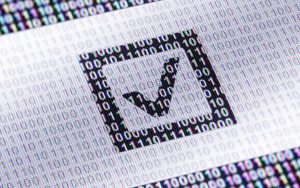Healthcare is one of the most sensitive and personal industries out there. The nature of data stored, shared, and sent within the healthcare sector is highly personal and sensitive in nature, making data security a crucial concern for operators. Companies are obligated to ensure the personal information of data subjects is secure but still accessible when required under data protection regulations. In this blog post, we will discuss how health data is defined, who uses it, and the importance of data security in healthcare.
Defining health data
Health data is an umbrella term for any type of data related to an individual’s health. It encompasses information on health conditions, quality of life, causes of death, and other related areas. Patient health records, studies on groups of people’s health, and data from various sources like blood samples, imaging data, and fitness and health devices are all forms of health data.
In the healthcare industry, large amounts of health-related data are generated every day by health and care services, research, and academic studies. This data can be either general information about national or local populations or personal data.
Who uses health data?
In both the US and the UK, health data is used by various stakeholders to improve healthcare outcomes. In the UK, NHS commissioners and providers use health data to track patterns and trends in hospital activity, assess how care can be provided and improved, and to offer support service planning. Similarly, in the US, healthcare providers and researchers use health data to gain insights into diseases and their causes, develop new diagnosis methods, and identify ways to devise new treatments for patients.
University research teams in both countries also use health data to understand more about diseases and their causes, with the aim of developing new diagnosis methods and identifying ways to devise new treatments for patients. Charities in both the UK and the US also use health data to evaluate services and find ways to improve care offered.
Furthermore, in both countries, companies partnered with health services provide support in the form of advanced technology and expertise. Third-party companies with the capacity to make sense of complex data collected in hospitals can use health data to inform care and new treatments.
Data security concerns
Data privacy is a crucial element in both everyday healthcare and in environments where health data research is conducted. While almost all datasets used for research do not use identifying information like a patient’s name, all healthcare industry operators are required by law to put adequate data security measures in place. This is to ensure that any health data kept on file, shared with third parties, or emailed to patients themselves remains safeguarded from exposure, alteration, or loss. As a result, end-to-end encryption is always recommended.
Encrypt your health data now
At Galaxkey, we provide cutting-edge end-to-end encryption to add protection to data files and emails, whether they are at rest or in transit. Encryption is simple to use and can be added with a single mouse click, ensuring that all health data remains free from potential compromise and avoiding any chance of a breach. Contact us today and book your free 14-day trial.



